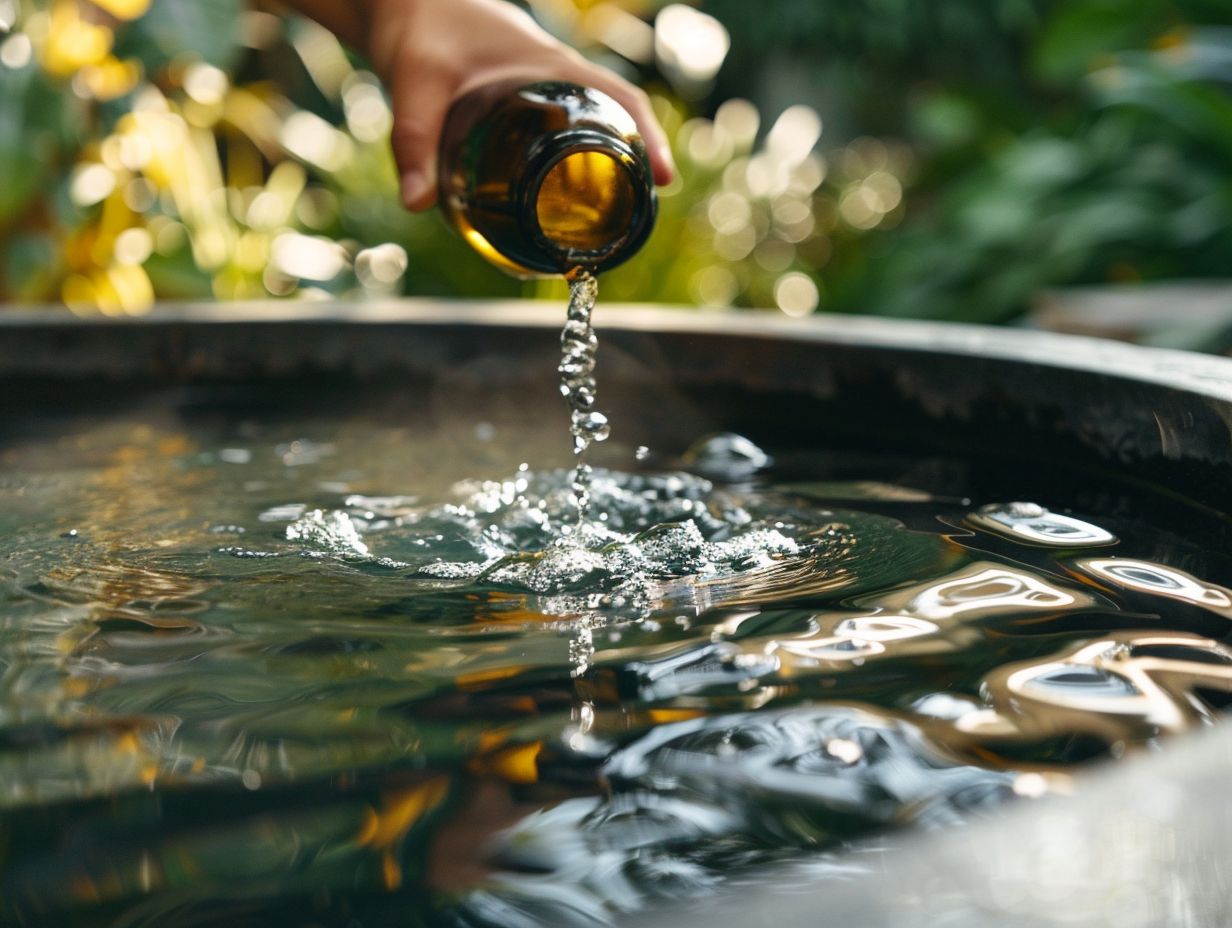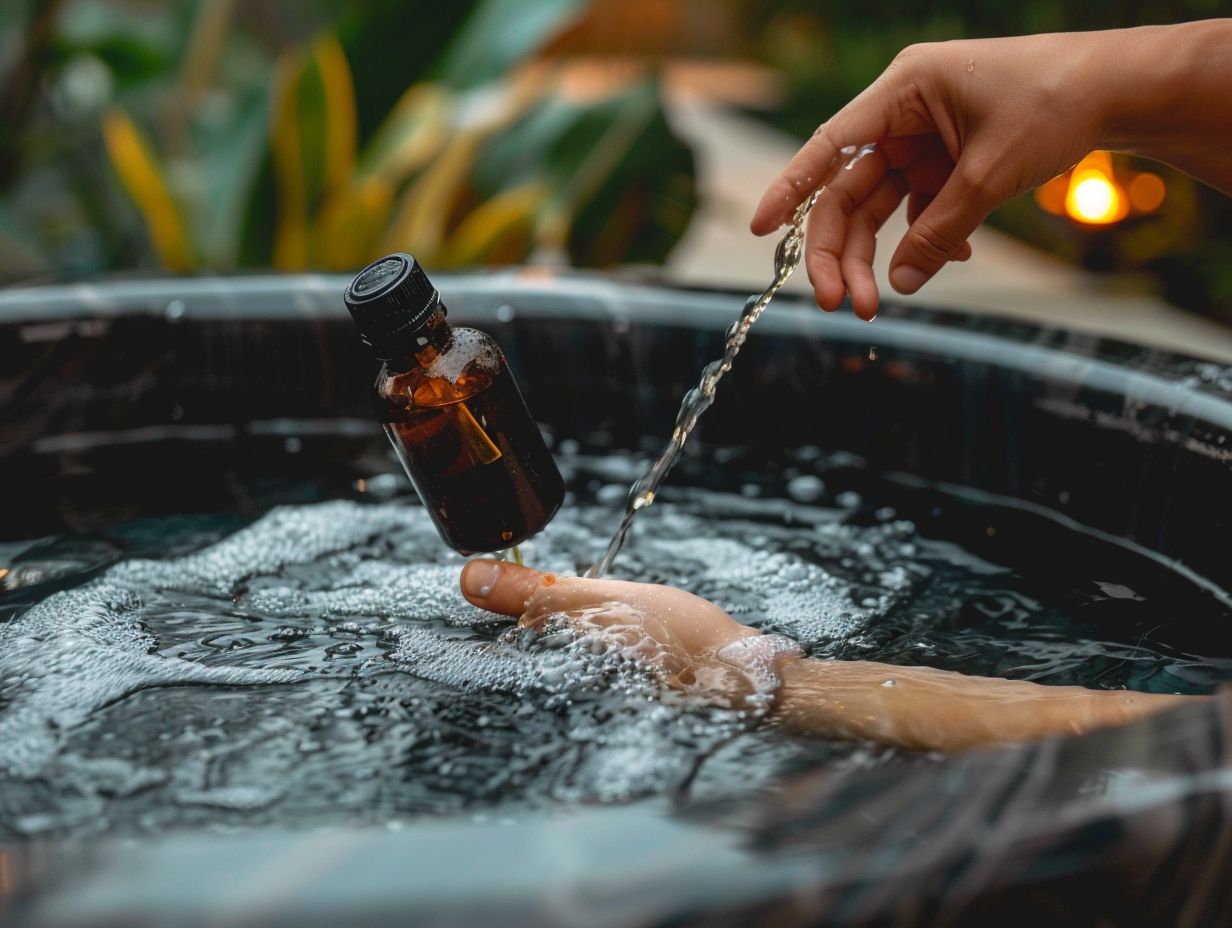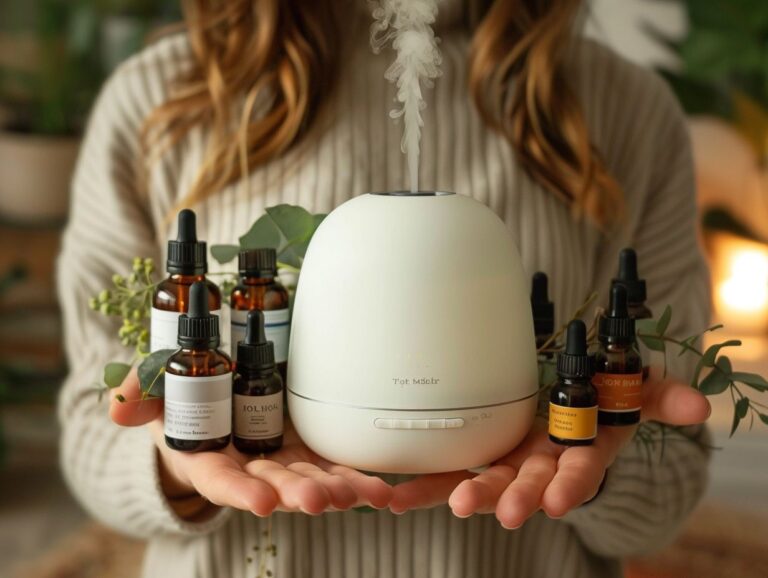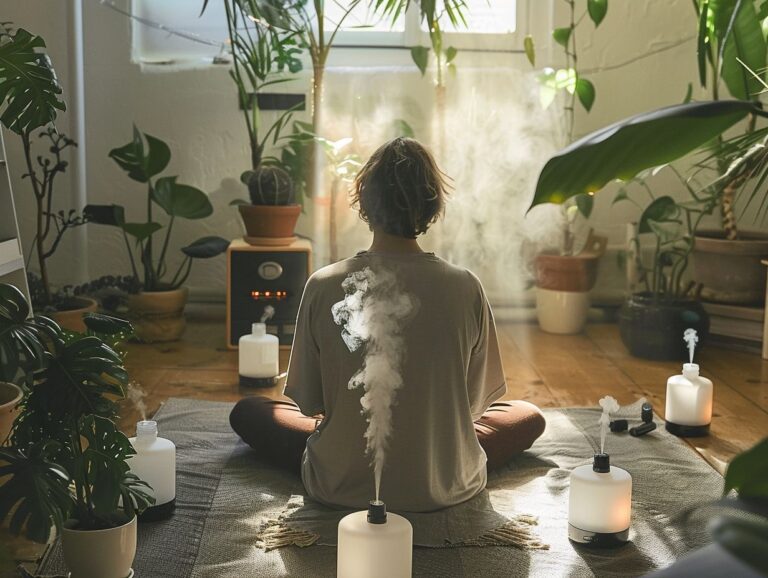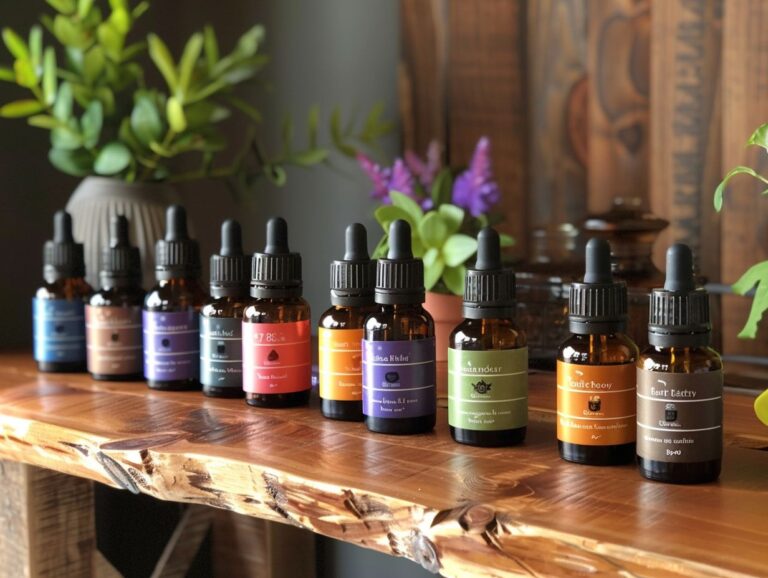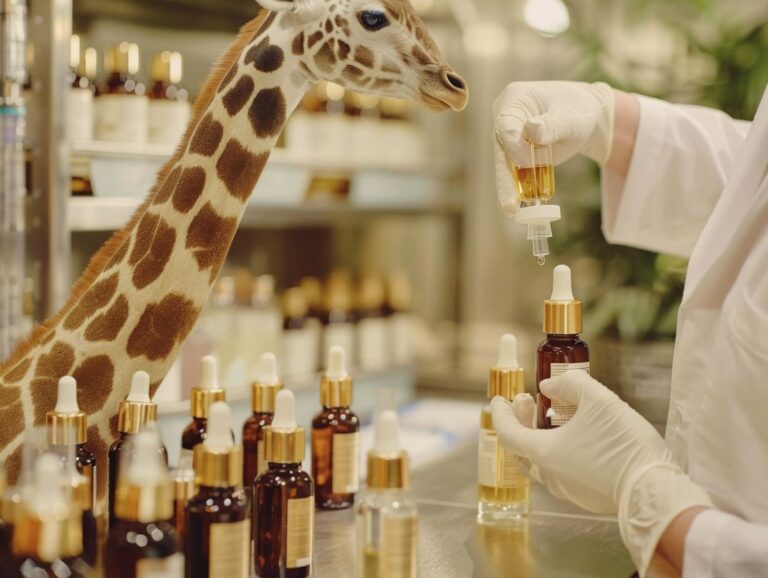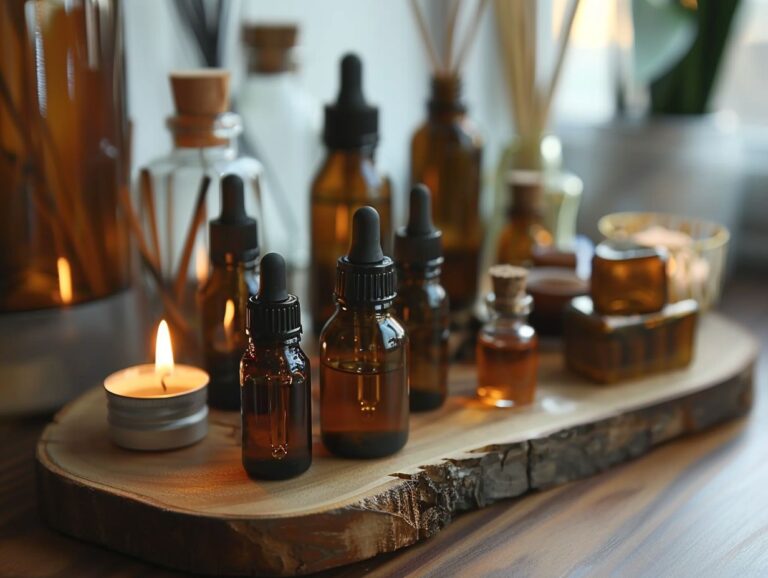Can You Put Aromatherapy Oils in a Hot Tub
Are you a fan of aromatherapy oils and wondering if you can use them in your hot tub for a spa-like experience?
We will explore what aromatherapy oil in bath is, the benefits of using aromatherapy oils, and whether you can safely use them in a hot tub.
We will also discuss the risks of using aromatherapy oils in a hot tub, how to use them effectively, and alternative options such as bath bombs and essential oil diffusers.
Let’s dive in and discover the world of aromatherapy in hot tubs!
Key Takeaways:
What is Aromatherapy?
Aromatherapy is a holistic healing treatment that uses natural plant extracts, known as essential oils, to promote health and well-being. These essential oils are extracted from various parts of plants and offer a range of therapeutic benefits.
Historically, aromatherapy traces its origins back to ancient civilizations such as Egypt, Greece, and China, where aromatic plants and their extracts were used for medicinal and spiritual purposes. The principles of aromatherapy revolve around the belief that inhaling the aroma of these essential oils or applying them to the skin can positively impact physical, emotional, and mental health. This practice has gained immense popularity in modern wellness practices, offering a natural and less invasive alternative to conventional medicine.
What are Aromatherapy Oils?
Aromatherapy oils are concentrated extracts derived from various plants, flowers, and herbs that are used in aromatherapy practices. Popular essential oils include Lavender, Vanilla, Eucalyptus, Ylang-Ylang, Peppermint, and Citrus, each offering unique scents and therapeutic properties.
Extracting essential oils involves different methods such as steam distillation, cold pressing, or solvent extraction.
Lavender oil, known for its calming aroma, can help reduce stress and promote relaxation.
Citrus oils like Sweet Orange and Lemon are energizing and refreshing.
Eucalyptus oil is popular for its respiratory benefits, often used in cold remedies.
Ylang-Ylang oil is beloved for its floral fragrance and is said to have aphrodisiac qualities.
Vanilla oil can create a warm and comforting atmosphere, making it a popular choice for relaxation and stress relief.
What are the Benefits of Aromatherapy Oils?
Aromatherapy oils provide a myriad of benefits for both the mind and body. From improving skin health to enhancing mental well-being, essential oils such as Lavender, Vanilla, Eucalyptus, Ylang-Ylang, Peppermint, and Citrus offer a range of therapeutic advantages.
Starting with Lavender, this gentle essential oil is well-known for its calming properties, making it perfect for reducing stress and promoting relaxation.
On the other hand, Vanilla oil is often used in skincare due to its moisturizing and soothing effects, helping to improve skin health and restore balance.
Eucalyptus oil is fantastic for respiratory health and mental clarity, clearing the mind and invigorating the senses.
Ylang-Ylang is celebrated for its ability to uplift mood and reduce anxiety, offering support for mental wellness and emotional balance.
Peppermint oil provides a refreshing and cooling sensation, ideal for alleviating headaches and boosting energy levels.
Citrus oils like Orange and Lemon are cherished for their bright and uplifting aroma, promoting positivity and rejuvenation.
Relieves Stress and Anxiety
Aromatherapy oils like Lavender, Eucalyptus, Ylang-Ylang, and Peppermint are known for their calming properties that help in reducing stress and anxiety, promoting relaxation and mental well-being.
Lavender oil, with its floral and sweet aroma, is widely recognized for its ability to calm the mind and improve sleep quality.
Eucalyptus oil, known for its invigorating scent, can also relieve mental exhaustion and promote mental clarity.
Ylang-Ylang oil’s exotic fragrance has a calming effect on the nervous system, reducing tension and promoting a sense of peace.
Lastly, Peppermint oil’s refreshing scent can help alleviate headaches and improve focus, making it a great option for stress relief and concentration.
Improves Sleep Quality
Aromatherapy oils such as Lavender and Bergamot are renowned for their sleep-inducing properties, promoting better sleep quality and leaving individuals feeling invigorated upon waking.
These essential oils can play a significant role in creating a soothing and calm atmosphere that is conducive to a good night’s sleep. Lavender oil is known for its calming effects, helping to reduce anxiety and stress levels, which are often barriers to falling asleep. On the other hand, Bergamot oil acts as a mood enhancer, lifting spirits and promoting a sense of relaxation.
When diffused or applied topically, these oils can help regulate sleep patterns and improve overall sleep quality. Their soothing scents can signal to the brain that it’s time to unwind and prepare for a restful night ahead. By incorporating these oils into your bedtime routine, you can create a tranquil environment that signals to your mind and body that it’s time to relax and drift off peacefully.
Reduces Muscle Tension and Pain
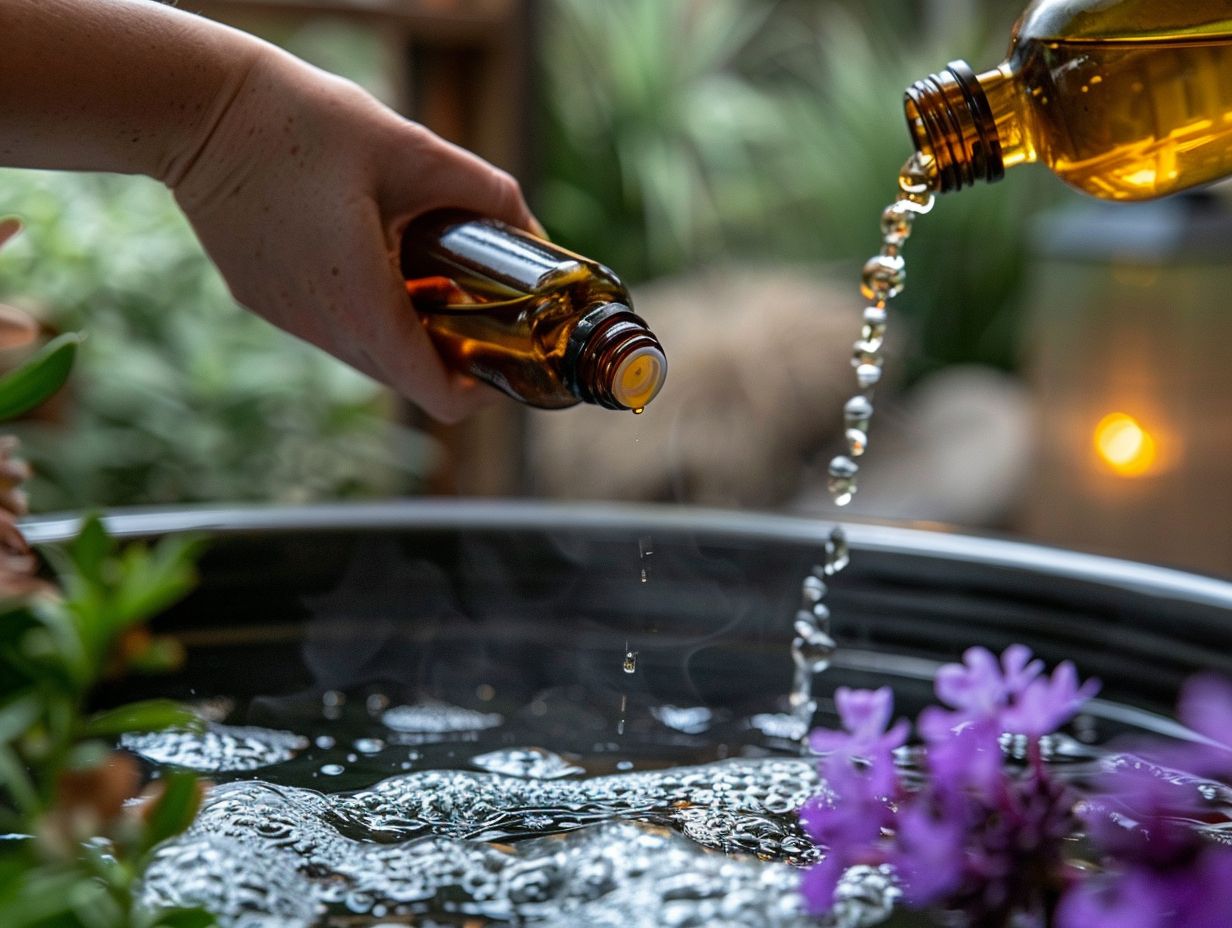
One of the key benefits of eucalyptus essential oil is its ability to improve blood circulation, aiding in the delivery of oxygen and nutrients to the muscles, which can further enhance the relaxation and healing process. The menthol-like properties present in eucalyptus oil provide a cooling sensation that can soothe sore and fatigued muscles, making it an ideal choice for post-workout recovery.
Plus its physical benefits, the aroma of eucalyptus oil is known to have a calming effect on the mind, helping to reduce stress and promote overall well-being. Its natural anti-inflammatory properties can help to reduce swelling and inflammation, contributing to the relief of muscle pain. Whether used in massage oils, bath soaks, or diffusers, eucalyptus essential oil offers a holistic approach to muscle relaxation and pain relief.
Boosts Immune System
Peppermint and Citrus essential oils are known for their immune-boosting properties, aiding in supporting the body’s natural defense mechanisms. Incorporating these oils into a cleansing regimen can help enhance overall immunity.
Peppermint essential oil is revered for its antibacterial and antiviral properties, which can help combat pathogens and bacteria that compromise the immune system. Citrus oils, such as lemon and orange, are rich in antioxidants that promote detoxification and boost immune function.
When used in aromatherapy or diluted for topical application, these oils can help purify the air and provide a refreshing scent that invigorates the senses. Adding a few drops of Peppermint or Citrus oil to a diffuser can create a welcoming environment while also supporting respiratory health.
Can You Use Aromatherapy Oils in a Hot Tub?
Utilizing aromatherapy oils in a hot tub can enhance the relaxation experience, providing added benefits to the mind and body. It is essential to ensure safety measures are followed, especially when using Jacuzzis for aromatherapy purposes.
When adding essential oils to your hot tub, always remember that not all oils are compatible with hot tub materials. Some oils can cause damage to the tub, affecting its longevity. It is important to dilute the oils before adding them to the water to prevent skin irritation or allergic reactions.
Be cautious with the quantity of oils used, as some can be very potent and may cause discomfort if too much is added. Always consult with a professional to determine the appropriate dilution ratios for safe usage.
What Are the Risks of Using Aromatherapy Oils in a Hot Tub?
While aromatherapy oils can be beneficial in a hot tub, there are potential risks to consider, such as skin sensitivities, chemical reactions, and safety concerns. It is crucial to be mindful of these risks to ensure a safe and enjoyable experience.
Essential oils, although popular in enhancing the relaxation experience, can sometimes lead to irritation or allergic reactions on the skin due to their concentrated nature. When mixed with hot water in a spa, certain oils may interact with the tub’s materials or water chemistry, causing unwanted side effects.
Proper dilution and selection of essential oils is paramount to prevent adverse effects. Some oils are phototoxic, becoming harmful when exposed to sunlight on the skin, particularly after a soak.
How to Use Aromatherapy Oils in a Hot Tub?
Incorporating aromatherapy oils into a hot tub can be done by adding a few drops of preferred essential oils directly into the water. Products like MPScents or Young Living Oils offer a selection of high-quality oils suitable for hot tub use.
Essential oils can provide a range of benefits, from relaxation to skin nourishment, when properly diffused in a hot tub. To ensure optimal diffusion, consider using a specific oil diffuser designed for hot tubs, like the AromaMist Spa Mister. Methodically adding the drops near the water jets can help with even distribution throughout the tub. Mixing oils, such as lavender with eucalyptus, can create a tailored blend of scents to suit your preferences. Always remember to start with a small amount of oil and gradually increase to achieve your desired level of aroma.
What Are the Best Aromatherapy Oils to Use in a Hot Tub?
When selecting aromatherapy oils for hot tub use, it is essential to consider soothing scents like Lavender, Eucalyptus, and Vanilla that complement the relaxation experience. Ensure compatibility with the hot tub’s water care system for optimal benefits.
These top essential oils are known for their calming properties that can help you unwind and destress after a long day. Lavender is widely recognized for its ability to promote relaxation and improve sleep quality. Eucalyptus offers a refreshing scent that can clear your mind and ease respiratory issues, perfect for a spa-like atmosphere. On the other hand, Vanilla adds a warm, comforting touch to the environment, enhancing feelings of serenity.
How Much Oil Should You Use in a Hot Tub?
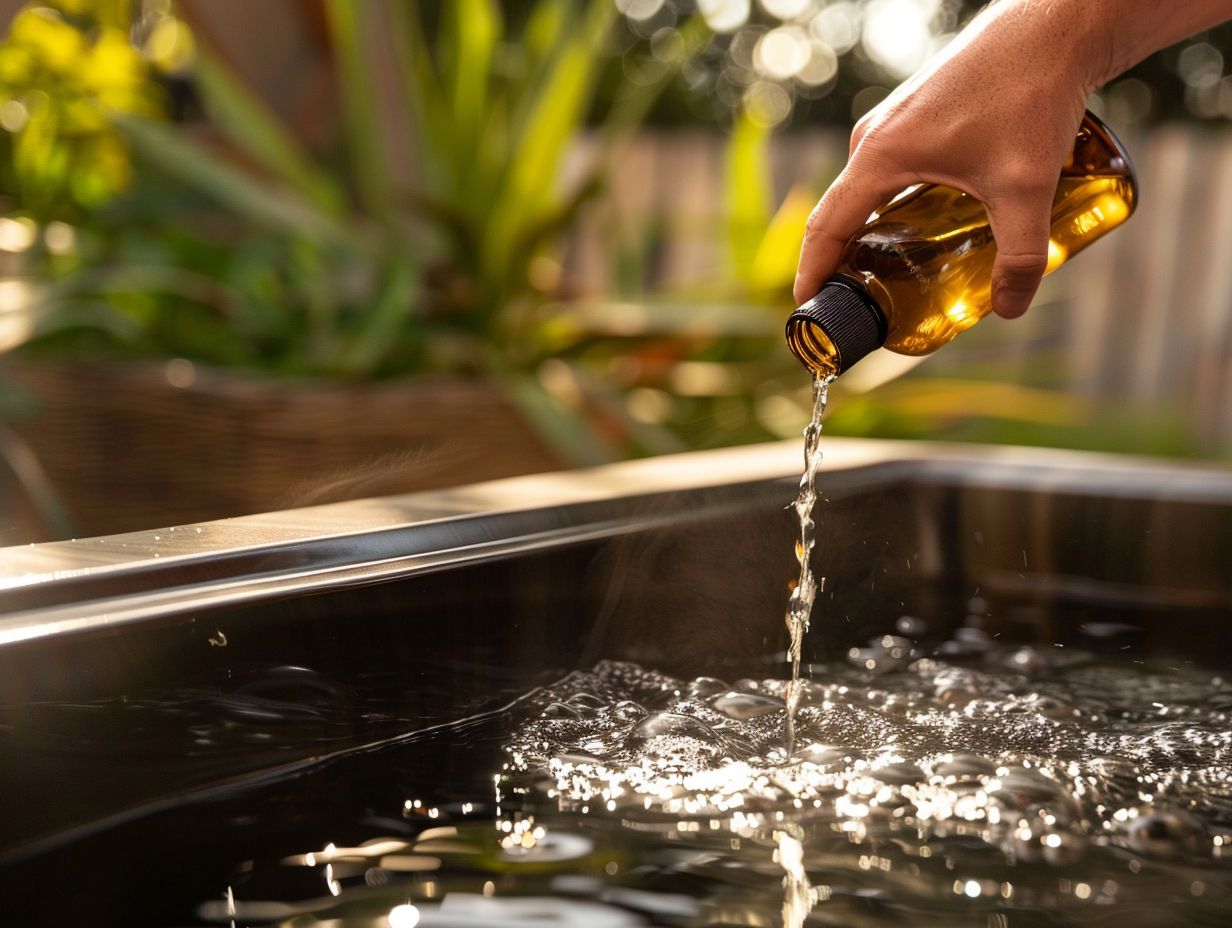
Determining the ideal amount of essential oil to use in a hot tub depends on the tub’s size and water capacity. It is crucial to avoid excess oil, as it may not only affect efficacy but also lead to potential issues with the hot tub’s filtration system.
For smaller hot tubs, like a two-person model, start with just a few drops of essential oil and adjust based on scent preference. Larger hot tubs, such as those fitting six or more people, can handle slightly more, but moderation remains key to prevent overwhelming fragrances. A general rule of thumb is to use about 5-10 drops of essential oil per 100 gallons of water. This ensures a pleasant aroma without overpowering the senses or causing buildup in the tub. Remember, a little goes a long way in hot tubs!
How to Clean Aromatherapy Oils from a Hot Tub?
Maintaining a regular cleaning regimen is crucial to remove residual aromatherapy oils from a hot tub. Excess oil can clog the filtration system, potentially leading to water quality issues and affecting the overall performance of the hot tub.
A thorough cleaning routine ensures that the essential oils in a hot tub residue is effectively eliminated, preventing any build-up that could hinder the tub’s functionality.
Proper maintenance not only enhances the lifespan of your hot tub but also guarantees a hygienic and enjoyable soaking experience. To start, drain the tub completely and use a mild detergent or specially formulated cleaner to scrub the surfaces, removing any oil traces. Focus on the filter, as it is the primary area where oil accumulation can occur, impairing the filtration process. Rinse everything meticulously, including the cover and jets, to avoid any lingering residue compromising the system. Incorporating this cleaning regimen into your routine will keep your hot tub running smoothly and efficiently.
Are There Any Alternatives to Aromatherapy Oils in a Hot Tub?
Apart from aromatherapy oils, there are alternative options to enhance the hot tub experience. Options like bath bombs, Epsom salts, and Essential Oil Diffusers offer unique ways to enjoy relaxation and wellness benefits while soaking in the hot tub.
Bath bombs are effervescent spheres that release essential oils, colorants, and luxurious scents into the water, creating a soothing and aromatic bath experience. Epsom salts, rich in magnesium, can help relax muscles and reduce inflammation, making them a popular choice for soaking in hot tubs. Essential Oil Diffusers can disperse fragrant aromas into the air, enhancing the spa-like atmosphere around the hot tub, providing an immersive sensory experience.
Bath Bombs
Bath bombs are effervescent spheres that dissolve in water, releasing essential oils and fragrances that create a luxurious spa-like experience in a hot tub. These fizzy treats offer both aesthetic and aromatic pleasures to bathers.
One of the main benefits of using bath bombs in hot tubs is the soothing and relaxing atmosphere they help to create. The effervescence as they fizz away adds a sense of excitement and fun to the bathing ritual. Along with their delightful scents, bath bombs also bring a visual appeal with their colorful swirls and mesmerizing patterns that transform the mundane act of bathing into a rejuvenating spa retreat. The calming effects of the essential oils present in bath bombs contribute to overall relaxation, making it a holistic sensory experience.
Epsom Salts
Epsom salts, known for their muscle-relaxing and detoxifying properties, are a popular alternative for enhancing the hot tub experience. These salts can help in promoting relaxation, soothing muscles, and detoxifying the body.
Epsom salts are rich in magnesium, a mineral crucial for nerve function and muscle relaxation. When added to a hot tub, they aid in relieving tension and muscle soreness. The warmth of the water enhances the absorption of magnesium, aiding in stress relief. Epsom salts can assist in reducing inflammation and promoting better sleep quality. The therapeutic qualities of these salts provide a rejuvenating bathing experience, making them a favorite among hot tub enthusiasts seeking both relaxation and wellness benefits.
Essential Oil Diffusers
Essential oil diffusers offer a convenient way to disperse aromatic scents in the hot tub surroundings, creating a relaxing atmosphere conducive to unwinding and de-stressing.
By gently releasing the fragrant essential oils into the air, these diffusers not only infuse the space with beautiful scents but also have therapeutic benefits that can enhance the overall spa experience. The soothing fragrances can help calm the mind and body, promoting a sense of tranquility and well-being. The customizable nature of essential oil blends allows for a personalized touch, catering to individual preferences and creating a unique ambiance for each hot tub session.
Frequently Asked Questions
Can You Put Aromatherapy Oils in a Hot Tub?
Yes, you can put aromatherapy oils in a hot tub. However, it is important to use caution and follow proper guidelines to ensure a safe and enjoyable experience.
What types of aromatherapy oils can be used in a hot tub?
There are many types of aromatherapy oils that can be used in a hot tub, including lavender, eucalyptus, peppermint, and chamomile. It is important to choose oils that are specifically designed for use in hot tubs and are safe for skin contact.
How should I add aromatherapy oils to my hot tub?
It is recommended to add aromatherapy oils to your hot tub by diluting them in a carrier oil, such as almond or jojoba oil, before adding them to the water. This will help prevent skin irritation and ensure the oils are evenly distributed in the hot tub.
Can I mix different aromatherapy oils in my hot tub?
Yes, you can mix different aromatherapy oils in your hot tub. In fact, many people enjoy creating their own unique blends for a personalized aromatherapy experience. Just make sure to follow proper dilution ratios and only use oils that are safe for use in hot tubs.
Are there any precautions I should take when using aromatherapy oils in a hot tub?
Yes, there are a few precautions to keep in mind when using aromatherapy oils in a hot tub. These include avoiding oils that may cause skin irritation, such as cinnamon or clove, and not adding too much oil to the water, as it can become slippery and cause accidents.
How often should I add aromatherapy oils to my hot tub?
The frequency of adding aromatherapy oils to your hot tub will depend on personal preference. Some people may choose to add oils every time they use the hot tub, while others may only add them once a week. Just be sure to follow recommended dilution ratios and avoid over-saturating the water.

